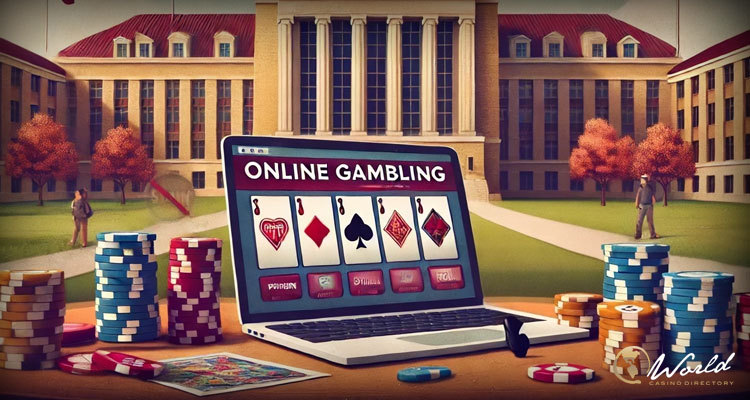
West Texas A&M University has taken a firm stand against online gambling by prohibiting access to such sites through any university resources. WT President Walter V. Wendler announced the enforcement of this policy in a guest essay published in the Amarillo Globe-News on September 22 and further shared this directive with the campus community via email on September 23. This decision aims to curb the risks associated with gambling, which President Wendler likens to drug and substance abuse challenges faced during formative college years.
Details of the gambling ban:
Effective immediately, this sweeping policy affects not only students but also faculty and staff, encompassing all state-owned electronic devices like cell phones, laptops, tablets, and desktops. As the university states in its official press release, the ban extends to anyone using the university-provided WiFi within its premises and at associated locations such as Palo Duro Canyon State Park, the Panhandle-Plains Historical Museum, the WT Enterprise Center, and the Harrington Academic Hall WTAMU Amarillo Center. This initiative reflects the university’s commitment to fostering a healthy educational environment, as emphasized by President Wendler’s statement that there is “not a single thread of evidence showing predatory gambling has a positive impact on academic excellence.”
President Wendler highlighted concerns over the ease of access to online gambling and sports betting apps, which can potentially encourage more pervasive gambling habits among students. This is particularly troubling given the statistic from The Conversation, a nonprofit news organization, which notes that 6% of college students struggle with gambling addiction—double the rate of U.S. adults. Students burdened by gambling debts may increasingly turn to student loans, credit cards, and personal loans, further endangering their financial stability and academic success.
University’s civic responsibility and goals:
The ban is part of West Texas A&M’s broader mission, encapsulated in its long-range plan, WT 125: From the Panhandle to the World, which emphasizes the intrinsic link between citizens’ rights and civic responsibilities. This ethos is also driving the university’s ambitious One West comprehensive fundraising campaign, which quickly met its initial $125 million goal 18 months after its launch in September 2021 and is now targeting $175 million by 2025, with nearly $160 million already raised.
The action by West Texas A&M comes as the relationship between sports betting and higher education is scrutinized more broadly across the country. For instance, a recent bill proposed in New Jersey seeks to ban sports betting advertisements in college facilities and restrict partnerships between sports betting operators and higher education institutions. In the meantime, organizations like the Responsible Online Gaming Association (ROGA) are stepping up efforts to educate young adults about responsible gambling through digital campaigns and financial literacy programs nationwide.
Online casino in India refers to virtual platforms where Indian players can participate in various casino games, such as slots, poker, roulette, blackjack, and card games like Teen Patti and Andar Bahar, through the internet. These online casinos offer a wide variety of gambling experiences, allowing players to place bets, win prizes, and enjoy live or digital versions of traditional casino games from the comfort of their own homes.
Reputable online casinos in India are licensed and regulated to ensure fair play, data protection, and the security of financial transactions. Trusted casinos use advanced encryption technology to protect player information.
In summary, an online casino in India provides Indian players with access to a wide range of gambling options in a secure and convenient environment, offering both entertainment and the chance to win real money, all while adhering to local regulations.





